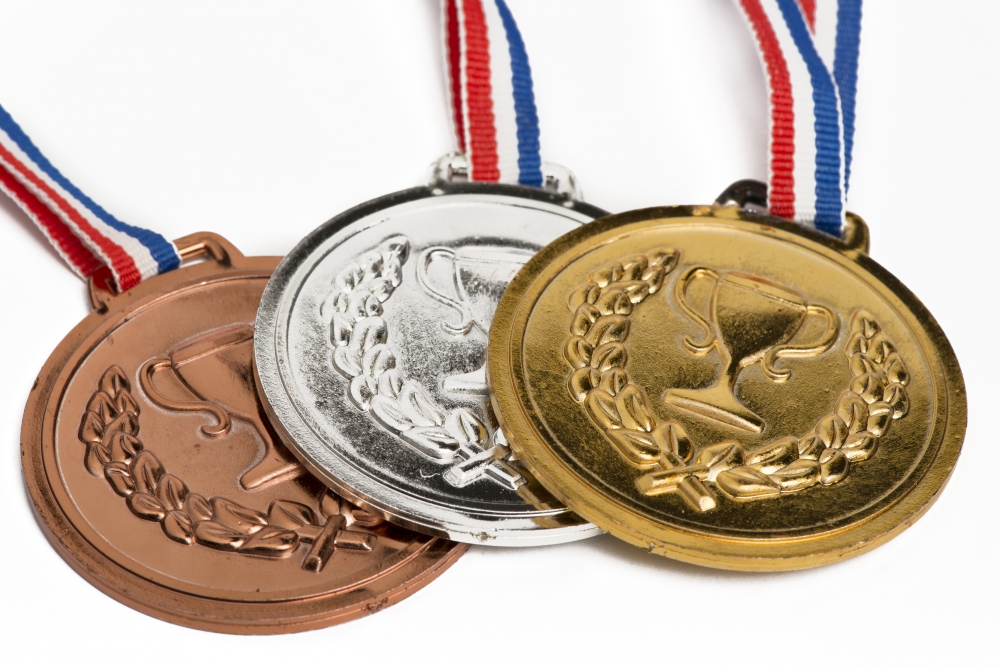
Let the Games Begin


Every athlete meeting in Rio de Janeiro for the 2016 Summer Olympics is following a dream. At the same time, each is participating in a tradition that dates back nearly 3,000 years.
“The original Games were part of a religious festival in honor of Zeus, king of the Greek Olympian gods,” said UC Santa Barbara classics scholar Helen Morales. “There were prayers and animal sacrifices. You can still see the ruins of the great temple of Zeus, and a running track dating to the fifth century BC if you visit the site at Olympia today.”
But as the Olympic Games get underway with competition and global camaraderie on full display, it’s worth noting, said Morales, the Argyropoulos Professor of Hellenic Studies at UCSB, that the ancient Games bore a much different complexion from what we see today.
The ancient Olympics were not about building diplomacy and harmony through different nations coming together, Morales added. Far from it, in fact. “For many centuries the Games were exclusively for Greeks,” she said. “Greek states competed against each other and non-Greeks, who were often disparagingly called ‘barbarians’ by the Greeks, were not allowed to compete. Nor were Greek women. So there was an ethos of building ‘community’ via competition, like the modern Olympics purport to have, but it was a pan-Hellenic rather than an international community that was built, and an exclusively male one.”
The current Olympic sensibility of fostering peace and cooperation across borders through athletics, Morales said, came courtesy of Baron Pierre de Coubertin, the French aristocrat who founded the so-called “modern Olympics” that we know today. The Coubertin-conceived festival is the third documented version of the Olympic Games, which experienced a hiatus of some 1,500 years. In 393, in making Christianity the empire’s official religion, Roman emperor Theodosius banned traditional “pagan” practices, which he believed the Games to be. So it was bye-bye, Olympics, until 1859, when they were revived briefly in Athens before Coubertin’s iteration launched in 1896.
“The modern Olympics are ‘based on a true story,’ ” said John W.I. Lee, a professor of history at UCSB and an expert in ancient Greece. “That is, they are not so much a recreation of the ancient games as they are a reflection of what late 19th-century Europeans wanted to believe about the Classical Greek past. Funnily, the modern Games’ official motto is in Latin, not Greek!”
“The traditional date of the first Olympics is 776 BC, but archaeology suggests there may have been athletic competitions at the site of Olympia, in southern Greece, as early as circa 1000 BC,” Lee added. “Originally the Olympics were a local religious festival. They became more widely important in the 600s BC — culturally, politically and economically.”
Some of those qualities still resonate today.
Even in ancient times, the Games were a major tourist attraction that brought throngs of spectators to Olympia, providing a boon to local businesses. And constructing buildings at Olympia became a means of attaining status. In the political realm, a city itself gained prestige if it could claim an Olympic victor as one of its own.
“It was a way for cities to compete with each other about which was best,” Lee said. “Rich citizens, even if they didn’t compete themselves, could sponsor athletes for the prestige of their home city. Control of Olympia itself became prestigious. The city of Elis seized Olympia sometime after 600 BC and held it for centuries despite conflicts with Sparta and others. Officially there was an Olympic truce so cities didn’t fight wars during the Games, but it wasn’t always observed.”
And then there was the Olympics’ cultural significance.
It was a see-and-be-seen event, Lee said, as well as a place to connect and catch up in a time of no means of mass communication.
“Classical Greece was divided into hundreds of independent city-states, but the Games offered a way for Greeks to build a shared pan-Hellenic identity,” Lee said. “They became a time to meet and talk as well as to watch the athletes. Travel was difficult and it was a big deal to assemble Greeks from all over the place. Without the internet, TV and newspapers, the Games had an important information-sharing function.”
“Then as now, the Olympics were a way for cities (now nations) to compete with each other — think of today’s medal counts by country — and for individuals to display their achievements,” Lee added. “Today winning athletes get endorsement deals; in antiquity they got statues of themselves set up and victory odes written about them.”
Another holdover from Olympics past: controversy, as in cheating, bribery and fighting.
The emperor Nero once bribed and threatened Games organizers to postpone the ceremony to coincide with an imperial tour of Greece in 67 CE. He also wanted to compete in the Games and did so. But, Morales said, Nero “performed disastrously, being thrown from his chariot. Despite this, he was given a victory wreath.”
“If you think our Olympics have drama,” Lee said, “consider this: In 364 BC, the Arcadians, who were neighbors of Elis, seized control of Olympia and ran the games for that year. The Elean army counterattacked during the pentathlon, leading to a battle in the middle of the Olympic sanctuary. The Arcadians pulled down the wooden bleachers to build fortifications and managed to repel the Eleans.”



